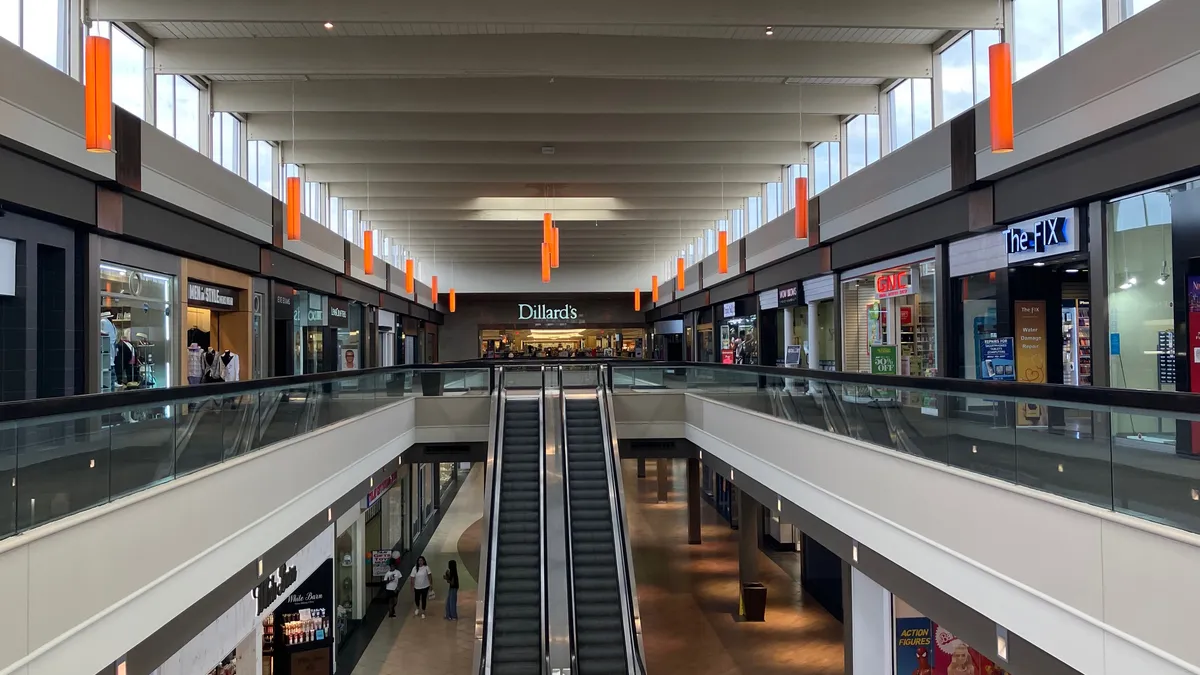Dive Brief:
- Thirty-two percent of U.S. consumers plan to start their holiday shopping “between July and October,” according to a recent survey by Gartner. Nearly as many — 29% — plan to start in November, the research and consulting firm said in a Monday announcement.
- However, just 14% of those surveyed said they plan to spend more on holiday shopping this year compared to last year. Most of those polled — 64% — said they plan to maintain their prior spending level, while 21% said they’re reducing their spending.
- The survey also found that three-quarters of respondents said higher prices, rather than an increased capacity for discretionary buying, is driving elevated spending for holiday gifts. “The effects of high inflation and supply chain issues in the post pandemic economy mean holiday shoppers are still on edge,” said Kassi Socha, a director analyst in Gartner’s marketing practice.
Dive Insight:
As of Wednesday, Black Friday, the traditional start of the holiday shopping season, is about 70 days away. Still, Gartner said consumers are engaging with retailers who have pushed holiday promotions into late summer.
Amazon on Tuesday announced the dates for the return of its Prime Big Deal Days sale next month. The fall promotion comes about three months after the company’s main Prime Day event in July. Target also said that its Circle Week will return next month. Both retailers touted the sales events as opportunities for consumers to get a holiday shopping head start.
In response to the trend of earlier sales and promotions, “successful chief marketing officers (CMOs) should begin holiday planning in Q1 and revisit their long-standing promotional and holiday plans throughout the year, launching execution in Q3,” Socha said. That strategy, said Socha, will enable marketing teams to refine and implement the consumer insights and analyses made earlier in the year, which in turn, will help retailers meet the expectations of their target customers.
Gartner’s survey of 327 people in June also identified three other trends to watch.
First, respondents said they believe online prices are better than in-store prices. As a result, 20% of those surveyed said they plan to increase their online shopping this year. Sixty percent of consumers also said they have at least one concern about in-store shopping this season. Those concerns include higher prices, inventory, selection and security concerns. All of those issues saw increases compared to last year, Gartner said.
Secondly, 57% of respondents said they plan to use one or more hybrid shopping services this year, like buy online, pick up in store, curbside pickup, same-day delivery or expedited shipping. Socha said interest in BOPIS and same-day delivery indicates consumers appear to favor the convenience and savings of some elements of in-store shopping — but not necessarily the experience itself.
Finally, Gartner’s survey found that consumers increasingly prefer extended return policies. “Consumers want the ability to return gifts well outside of the traditional 30-60 day window of purchase,” per Socha. “This is particularly true for younger shoppers with over seven out of 10 reporting they would be at least a little persuaded to purchase if offered an extended holiday return policy.”
















